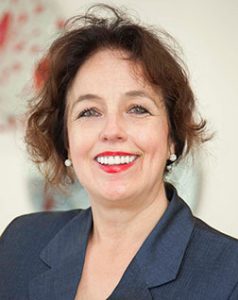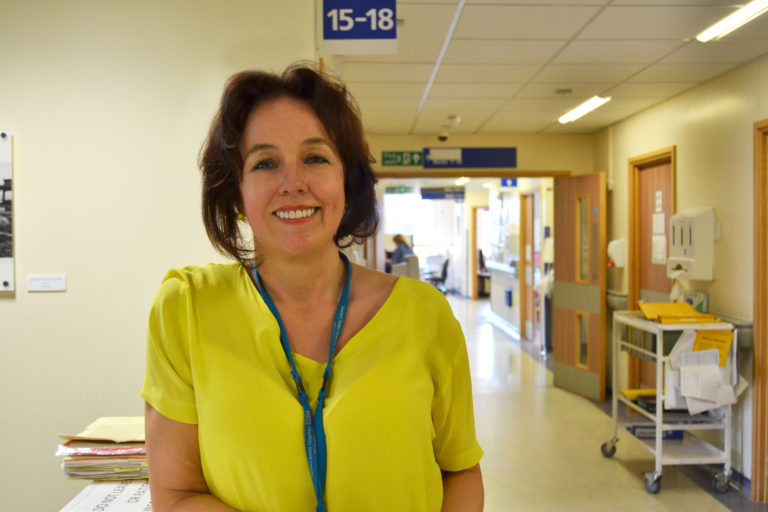Former Health Secretary Jeremy Hunt led the tributes as Brighton’s hospital boss retired at the end of last week.
Dame Marianne Griffiths, 61, retired from her job as chief executive of University Hospitals Sussex, the NHS trust that runs the Royal Sussex County Hospital.
The trust also runs the Royal Alexandra Children’s Hospital and Sussex Eye Hospital, both in Brighton, Southlands Hospital, in Shoreham, Worthing Hospital, St Richard’s Hospital, in Chichester, and the Princess Royal Hospital, in Haywards Heath.
Mr Hunt, who chairs the House of Commons Health and Social Care Select Committee, said: “My passion was improving safety and quality of NHS care.
“Marianne did an absolutely sensational job of putting together the best-run, safest, highest-quality care that I encountered anywhere in the NHS.
“Thousands and thousands of patients benefited because of your inspirational leadership.”
Dame Marianne became chief executive of the newly created Western Sussex Hospitals – formed from the merger of the Royal West Sussex and the Worthing and Southlands Hospitals NHS trusts – in 2009.
She was the Royal West Sussex chief executive before the merger and has spent 13 years leading University Hospitals Sussex and its predecessor trusts.
She and her executive team took over running Brighton and Sussex University Hospitals (BSUH) five years ago – in April 2017 – after the Care Quality Commission (CQC) rated the trust inadequate and placed it in special measures.
A year ago, after much better ratings, BSUH merged with Western to become University Hospitals Sussex, a £1 billion a year trust with almost 20,000 staff.
Among many professional accolades, she has been named the HSJ (Health Service Journal) chief executive of the year.
And she was made a Dame Commander of the Order of the British Empire in the 2019 New Year Honours for service to the NHS.
Alan McCarthy, who chairs University Hospitals Sussex, said: “The success of our hospitals has been built through teamwork and the fantastic commitment and support of all our staff.
“But outstanding organisations have outstanding leaders – and Dame Marianne is one of the most inspirational and successful NHS leaders of our generation.”

Under her leadership, hospitals in West Sussex became the first to be rated “outstanding” by the CQC in all key inspection areas. And hospitals in Brighton and Haywards Heath were recognised as the fastest improving in the country.
Dame Marianne’s leadership and influence extended to the national stage, not least as a passionate advocate of the Patient First continuous improvement programme.
Patient First has been endorsed by the NHS, CQC and Department of Health – and adopted by other NHS trusts and organisations.
The programme is intended to empower frontline staff and equip them with the skills to lead local and departmental improvements that benefit patient experience, quality of care and staff engagement.
This, combined with her leadership of a growing number of hospitals across Sussex, led her to become the first woman to top the prestigious HSJ Top 50 Chief Executives list in 2018. She topped the list again in 2019.

Dame Marianne said: “I always saw my career being in the care industry and I am so fortunate that I have been able to pursue that career from my nurse training more than 40 years ago to becoming chief executive of what is today University Hospitals Sussex.
“My passion for the NHS comes from fairness and equity and I have always been drawn to become a leader in the NHS.
“My relentless optimism has been key for me and I have strived to continuously improve my leadership ability and have learnt a lot along the way. I have learnt much more humility and I really value people and their opinions.
“There have been many challenges along the way but the last two years of the pandemic will stick with me when I leave. It has been hard on everyone – our staff, patients and our community.
“But what I am taking with me is memories – the wonderful letters I have received from patients (and) our Star Awards, celebrating and recognising our staff.
“(And) I have met the most amazing people across the entire organisation and have been fortunate enough to work with such a fantastic team.”
Deputy chief executive Andy Heeps has stepped up as interim chief executive until George Findlay, formerly the trust’s chief medical officer, returns to become the new chief executive on Wednesday 1 June.








